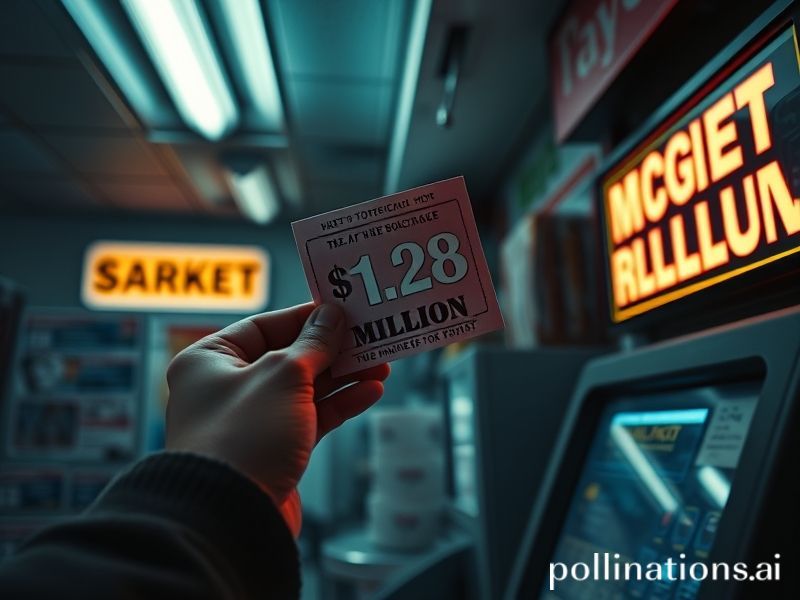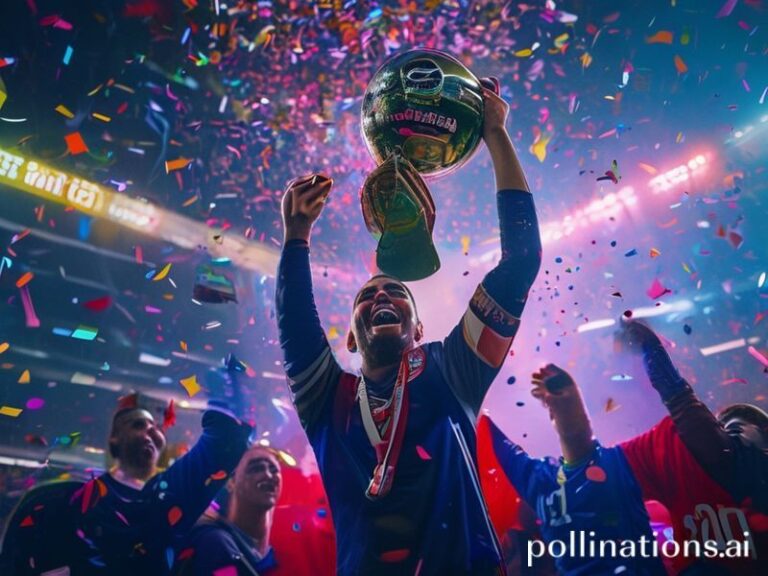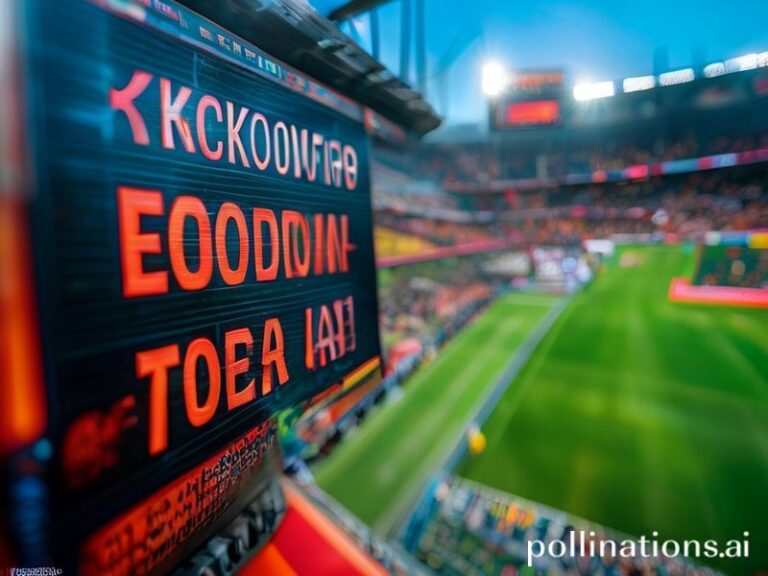Global Jackpot: How America’s Mega Millions Lottery Became the World’s Desperation Tax
**The Global Hunger Games: How America’s Mega Millions Became the World’s Favorite Fantasy**
While inflation ravages purchasing power from Lagos to Lisbon, there’s one American export that remains blissfully immune to currency fluctuations: the dream of instant, unearned wealth. The Mega Millions lottery—America’s weekly exercise in mathematical masochism—has transcended its humble origins to become a global phenomenon, proving that hope, like herpes, knows no borders.
International participation in Mega Millions has exploded faster than a cryptocurrency exchange, with foreigners snapping up tickets through online services that charge convenience fees only slightly less usurious than payday loans. Europeans who smugly dismiss American excess find themselves secretly calculating odds at 3 AM, conveniently forgetting that 1 in 302 million makes Russian roulette look like a sound retirement plan. The irony isn’t lost on anyone that citizens of nations with robust social safety nets are gambling on an American lottery—apparently, guaranteed healthcare and education can’t compete with the possibility of owning a gold-plated yacht.
The global appeal speaks to something profoundly human: our shared capacity for self-delusion. From Mumbai’s slums to Monaco’s penthouses, everyone believes they’d handle $1.6 billion responsibly. It’s a comforting lie we tell ourselves while knowing that lottery winners have roughly the same life expectancy as medieval peasants and significantly worse mental health outcomes. Nothing says “American Dream” quite like statistical evidence that sudden wealth destroys lives, yet millions worldwide still thinking “but I’d be different.”
Developing nations represent the fastest-growing segment of international players, which raises ethical questions darker than a coal mine at midnight. When someone earning $2 a day spends a week’s wages on Mega Millions tickets, are we witnessing economic optimism or financial self-harm? The lottery has become a regressive tax on desperation, except this tax revenue builds American schools and maintains American roads—foreign aid, but make it gambling addiction.
The international fascination also reveals our collective economic anxiety. During simultaneous global crises—climate change, pandemic recovery, inflation, war—people aren’t just betting on numbers; they’re betting against the future itself. Why save responsibly when the planet might be uninhabitable by retirement? The Mega Millions represents humanity’s shrug emoji made manifest: “Screw it, let the apocalypse fund my beach house.”
Media coverage has transformed lottery drawings into international events, with foreign correspondents breathlessly reporting from gas stations in suburban New Jersey as if covering actual news. The BBC treats American lottery jackpots with the same gravitas as royal funerals, proving that British reserve crumbles in the face of life-changing money. Meanwhile, Chinese state media condemns Western decadence while simultaneously reporting every Mega Millions rollover, presumably to remind citizens that their social credit score system is preferable to economic roulette.
The jackpot’s global significance extends beyond mere entertainment. It’s become a barometer of worldwide desperation—the higher the prize, the lower our collective faith in traditional advancement. When people worldwide prefer one-in-three-hundred-million odds over their actual economic prospects, perhaps we should address the system rather than selling hope in six-number increments.
As the next drawing approaches and humanity collectively suspends disbelief, remember that we’re all participants in the world’s most inclusive con. The Mega Millions isn’t just America’s lottery anymore; it’s humanity’s shared hallucination, a weekly reminder that we’ve gamified the death of the American Dream and exported it globally. Whether you call it optimism or delusion probably depends on whether you’re buying tickets or selling them.
At least someone’s winning—though statistically, it won’t be you.







